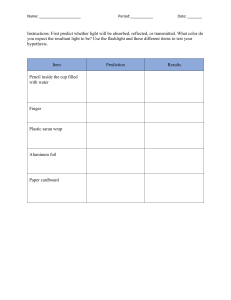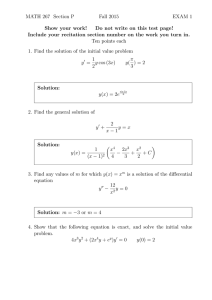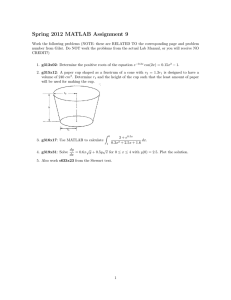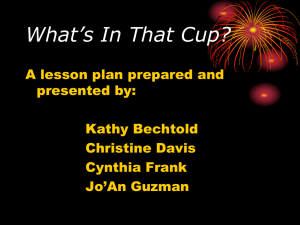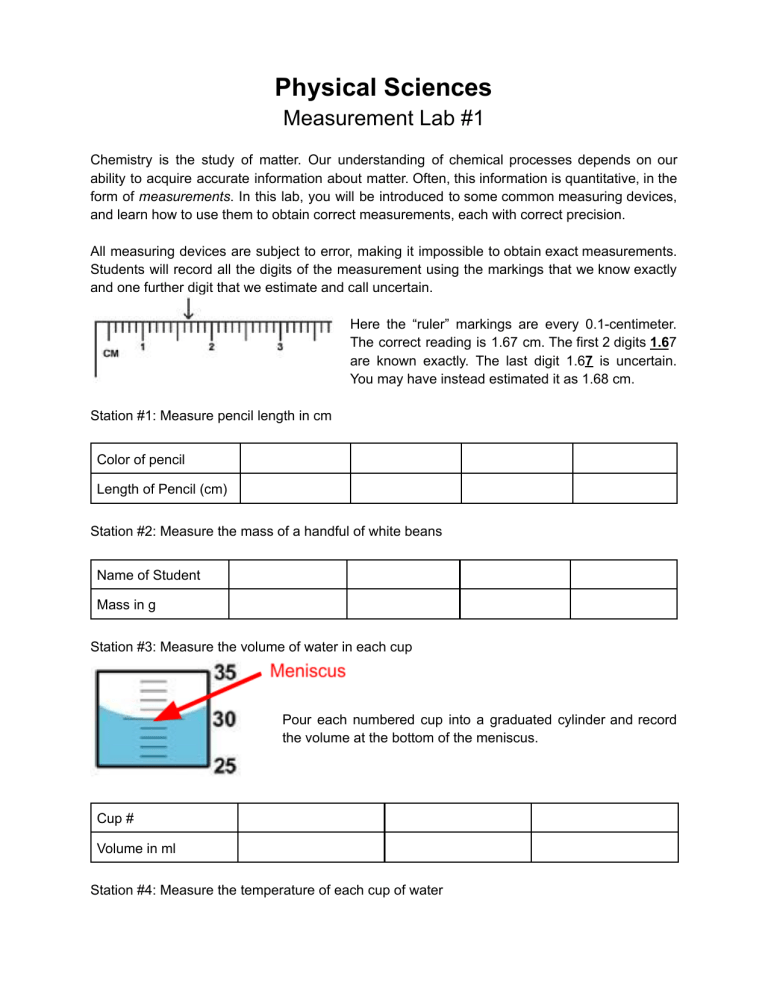
Physical Sciences Measurement Lab #1 Chemistry is the study of matter. Our understanding of chemical processes depends on our ability to acquire accurate information about matter. Often, this information is quantitative, in the form of measurements. In this lab, you will be introduced to some common measuring devices, and learn how to use them to obtain correct measurements, each with correct precision. All measuring devices are subject to error, making it impossible to obtain exact measurements. Students will record all the digits of the measurement using the markings that we know exactly and one further digit that we estimate and call uncertain. Here the “ruler” markings are every 0.1-centimeter. The correct reading is 1.67 cm. The first 2 digits 1.67 are known exactly. The last digit 1.67 is uncertain. You may have instead estimated it as 1.68 cm. Station #1: Measure pencil length in cm Color of pencil Length of Pencil (cm) Station #2: Measure the mass of a handful of white beans Name of Student Mass in g Station #3: Measure the volume of water in each cup Pour each numbered cup into a graduated cylinder and record the volume at the bottom of the meniscus. Cup # Volume in ml Station #4: Measure the temperature of each cup of water Cup # Temperature of water ℃ Station #5: Measure the volume of each object by water displacement Name of object Volume of object 1) Pick one of the data sets and draw a bar graph with all components. 2) Which is the manipulated variable? __________________ 3) Which is the responding Variable? ____________________
